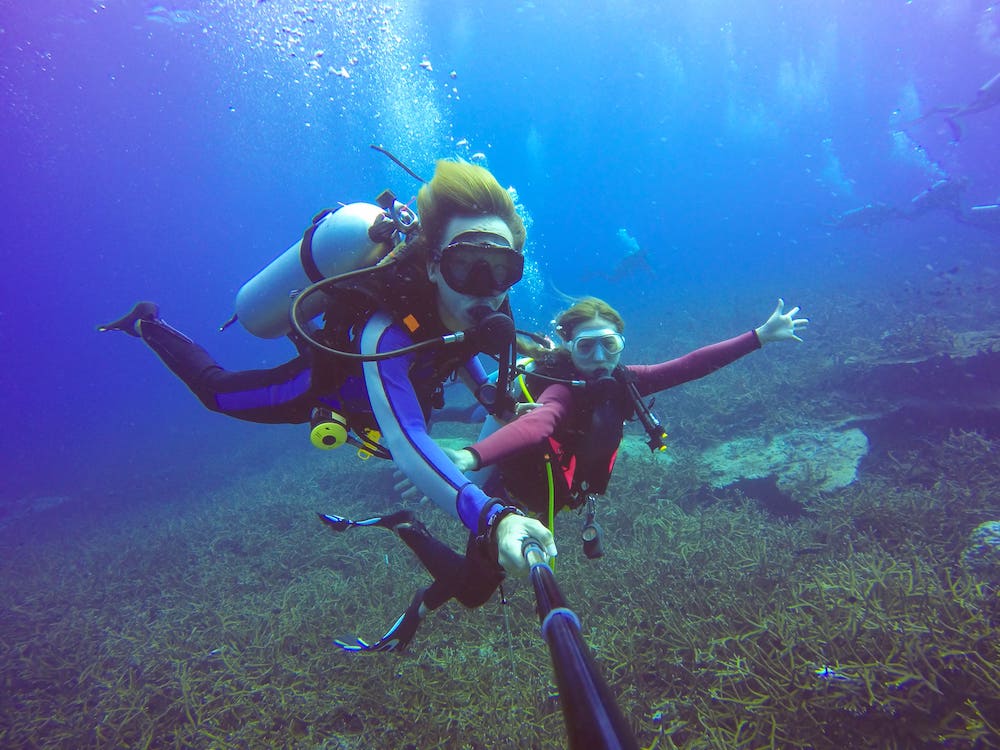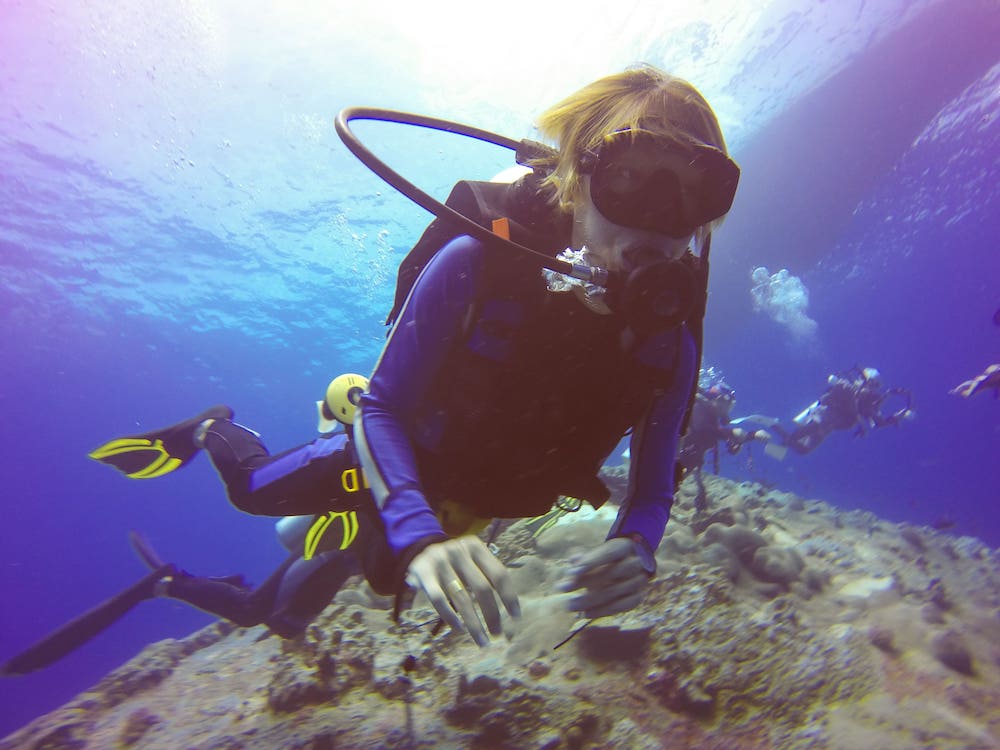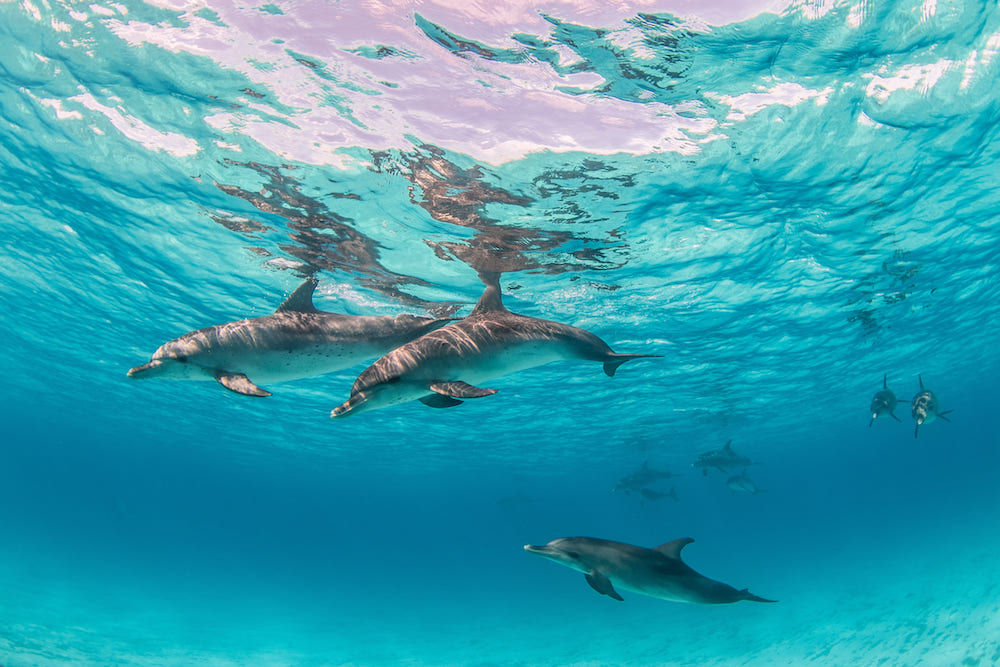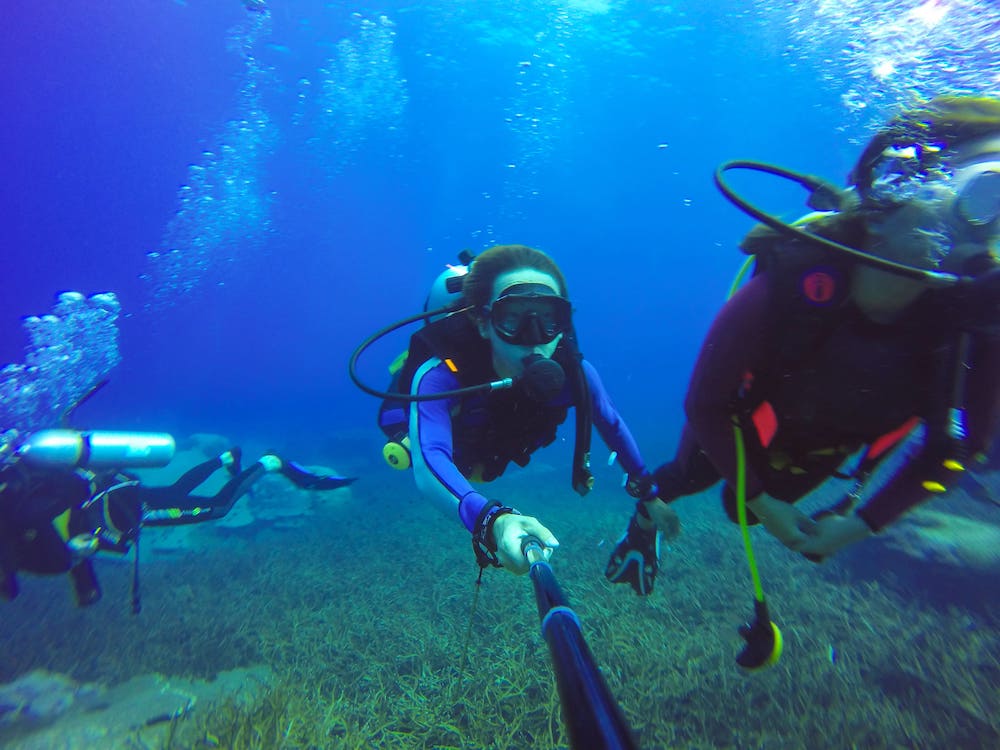SCUBA DIVING TIPS FOR BEGINNERS: AN IN-DEPTH GUIDE TO YOUR FIRST DIVE

A driver instructor once told us the following tale: “Fella comes along, a bit long on the tooth, near his retirement age and decides that he wants to scuba dive. The man had never once taken the plunge. Anyway, he wants to show off his prowess and amaze his new arm candy. He goes out and finds himself a rather sketchy operation. The type that doesn’t ask or doesn’t need certification — as long as you pay them, they’ll take you out on their boat. Long story short, they had to call us in to pull the guy out of the drink. He went down, had a panic attack, and now refused to re-surface.” Scuba diving is exhilarating, it’s out-of-this-world, it should be on everyone’s bucket-list — but it’s also something that needs to be approached with a certain level of care and respect. The sea is traitorous, it’s relentless, and like any good sailor will tell you “it takes no prisoners.” In this article, we’ll give you some great scuba-diving tips, as well as an idea of what to expect from first-time scuba diving.
Dive into Adventure: Essential Tips for Your First Scuba Diving Experience
Ready, set go — are you ready to embark on an underwater adventure? The type that comes with the soundtrack of Thunderball, or if you’re a Pixar fan by that great Bobby Darin song, “Beyond The Sea ”? The truth is that Scuba diving offers a mesmerizing experience. It allows you to explore the mysterious depths of the ocean. While it may seem like a head-scratcher for first-timers, with the right preparation and the proper inside tips, anyone can become a confident driver.
The Importance of a Certified Training Course
Enrolling in a certified scuba diving training course is vital for beginners. In these courses, they’ll give you all the necessary info and practice for your run as well as an International Certificate which you’ll need to rent or go out on trips. These courses equip you with essential knowledge and skills, covering topics like equipment usage, safety procedures, and underwater communication. The guidance of a qualified instructor will boost your confidence and give you the pat of the back you’ll need. They will help you to handle any hiccup that may arise during your dives.
Picking the Right Instructor
Choosing the right instructor is as important as selecting the right dive spot. Look for experienced instructors who prioritize safety, have excellent communication skills, and create a positive and supportive learning environment — check their ratings and what others are saying about them. Stalk them if necessary.
Health and Fitness
Scuba diving requires a certain level of physical fitness. Before taking the plunge, ensure you’re in good health and don’t have any medical conditions that could put you at risk underwater. Consult a medical professional and be honest about your medical history. Staying physically fit through regular exercise is vital.

Respect Your Surroundings — The Marine Ecosystem and You
As a responsible diver, it’s crucial to respect the marine ecosystem and the delicate balance of underwater life. Avoid touching or damaging coral reefs, refrain from feeding or petting marine creatures, and never collect souvenirs from the ocean. It’s not just about presenting the delicate habit and all the jazz, it’s also about your physical well-being. There are things down there that can end up hurting you. Not just fishes and the likes but other studs too —- for example Fire coral which can cause a burning sensation and a nasty swell.
Can Beginners Go Scuba Diving Without Prior Training or Experience?
While it may be tempting to dive headfirst into the deep blue without any prior training or experience, it is not advised. Respect the sea and take into account that there are a lot of moving pieces and steps to consider when scuba diving. Scuba diving for beginners and even experts involves potential risks and challenges that require proper training and preparation. There’s even math involved for resurfacing. Attending a certified training course and gaining experience under the guidance of an instructor is the safest and most responsible way to explore the underwater realm.
Common Mistakes You Should Avoid When Scuba Diving
Let’s jot down some of the most common mistakes for first-time scuba divers. —- it’s crucial to steer clear of these speed bumps:
- Skipping equipment checks: Always double and triple-check your equipment before each dive to ensure it’s functioning properly and securely fastened. Don’t just take your instructor’s word or the person you’re renting the stuff from promise. Scuba diving is dangerous, so the key is to have redundancies in check — even when checking your essentials. And always have a backup for critical systems and tools.
- Ignoring the buddy system: Never dive alone. Having a buddy provides an extra layer of safety and support in case of emergencies.
- Rushing the descent: Take your time while descending to allow your body to adjust to the changing pressure gradually.
- Ignoring air supply: Regularly monitor your air supply gauge and communicate with hand signals to keep your wingman informed of your air status.
- Overexertion and panic: Maintain a calm and relaxed state throughout the dive, conserving energy and avoiding unnecessary stress.
- Disregarding dive limits: Always adhere to your dive plan, including depth and time limits, to prevent decompression sickness or other injuries.
Tips for a Successful First-Time Scuba Diving Experience
Now that you’re familiar with potential pitfalls, let’s focus on some tips to ensure a successful and memorable first-time scuba diving experience:

Never Dive Alone — The Importance of the Buddy System
The buddy system is the golden rule of scuba diving. For that matter, it’s the one rule all tricky exercises stick to. There’s a reason Goose for every Maverick — and there’s a reason why that is. Always dive with a buddy who can assist you in case of emergencies. A pal who can share the excitement of discoveries. And second, who provide an additional perspective on the underwater environment. Together, you can keep each other safe.
Patience is a Virtue
Scuba diving requires patience, especially during the learning phase. Take your time to practice skills, adjust buoyancy, and observe the incredible marine life. Patience allows you to fully immerse yourself in the underwater world and appreciate its beauty at your own pace.
Double and Triple Check Your Equipment
Before every dive, ensure your equipment is in optimal condition. Check your regulator, BCD, mask, and other gear to guarantee they’re functioning correctly and fit you comfortably. This habit will give you peace of mind and eliminate potential equipment-related meltdowns during your dive.
Take a Mental Inventory — What Mental Landmines Can Blow Up During a Dive?
Scuba diving requires mental preparation as well. Address any fears, anxieties, or concerns before your dive. For example, scuba diving, for some might seem claustrophobic — do you suffer from that particular phobia? Understanding your emotions and being mentally prepared will help you stay calm and on task.
Sharks Are Not the Only Things That Can Hurt You
While sharks often get the spotlight in movies, it’s important to remember that other risks exist underwater. Be cautious of stinging creatures, such as jellyfish or fire coral. Avoid contact with other predators. Also, keep an eye out for sharp objects, strong currents, and potential entanglements. Staying aware of your surroundings will help you navigate safely.
Always Be Aware of Your Surroundings
Maintain situational awareness throughout your dive. Keep track of your depth, air supply, and dive time. Look out for other divers, boats, and potential hazards. Being aware and vigilant ensures your safety and those of your group.

Understand What to Expect Underwater — tips for first-time scuba divers
Underwater exploration presents a unique set of experiences and sensations. Here’s what you can expect during your first-time scuba diving adventure:
- Weightlessness: As you descend, you’ll feel a sense of weightlessness due to buoyancy control — this will allow you to effortlessly glide through the water.
- Vibrant Marine Life: Depending on where you dive, be prepared to be amazed by the colorful coral reefs and diverse marine creatures that call the underwater world their home. The underwater flora and fauna are rather dynamic and vibrant.
- Limited Visibility: Depending on the dive location and conditions, visibility can vary. Don’t be discouraged if it’s not crystal clear — part of the allure is the mystery of what lies beyond your immediate sight.
- Sound of Silence: Underwater, you’ll experience a sense of tranquility as the sounds of the surface fade away. This will inevitably leave you with, well you — with the peaceful symphony of your own breath and the ocean’s whispers.
